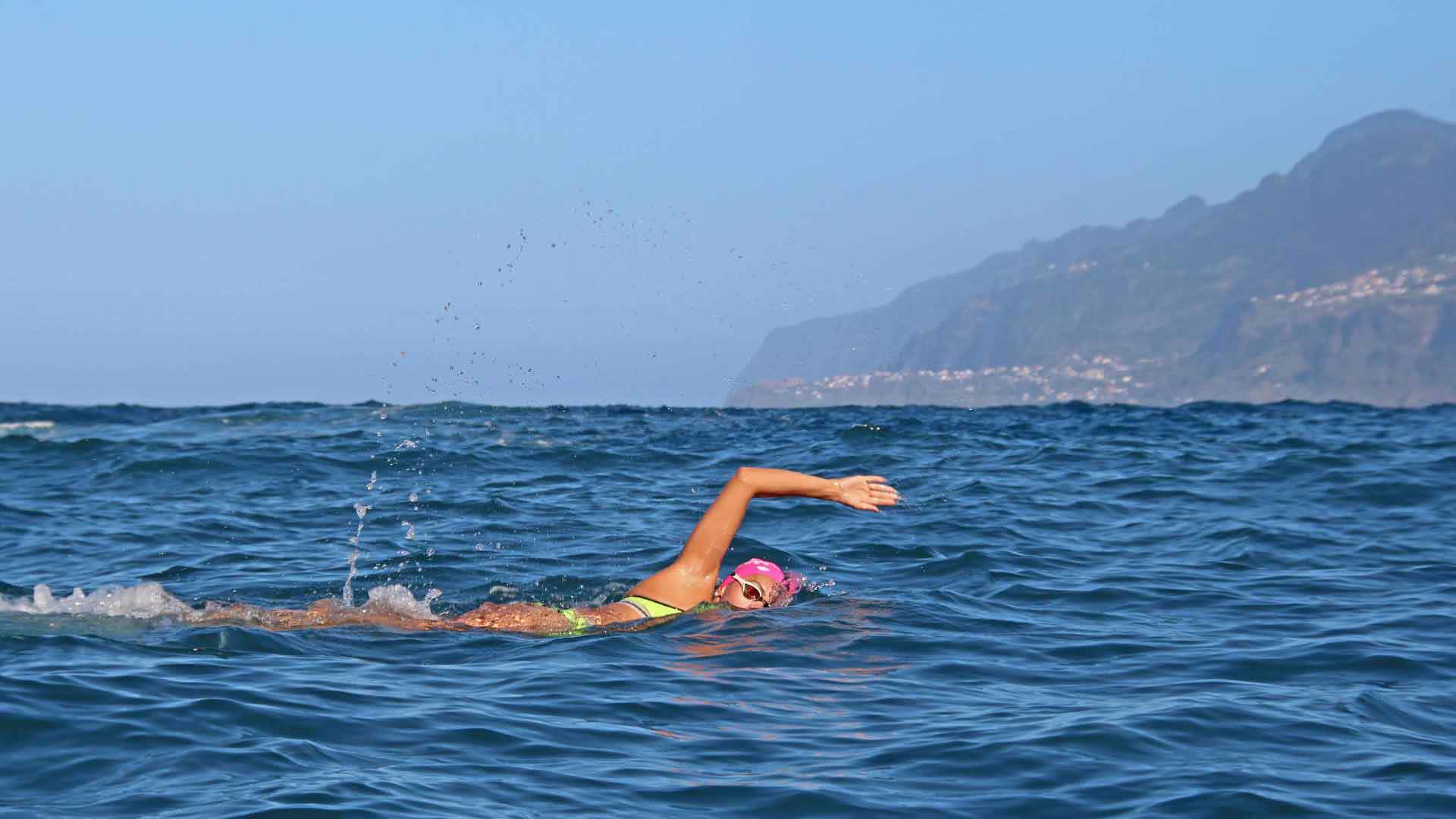Sweating is a physiological process that our body uses to rregulate body temperature. This explains why we sweat more in summer than in winter or when we play high-intensity sports. We do this simply because the excess heat is resisted by the evaporation of water through the sweat glands. Although we sweat all over the surface of our body, the glands through which we secrete the greatest amount of sweat are found in certain areas of our body, especially in the armpits and genital region. It is estimated that underarms can produce up to 700ml of sweat per hour. Likewise, it is estimated that a healthy adult can produce about half a liter of sweat per hour, a figure that in situations of intense effort or sport can rise to three or four litres. Sweat, in contact with the air, evaporates and carries with it a small amount of energy in the form of vapour.
Is it possible to sweat while in the water?
In water there are several factors that can influence perspiration in the pool or at the sea: the temperature of the water, the ambient temperature, the body’s metabolism and the exercise we are doing. If the water is cold, the sweat cooling function makes no sense, as very little sweating would be required to cool down. If, on the other hand, the water temperature is warm or hot, it would be necessary sweat a lot to be able to regulate it. However, in swimming pools or at the sea, sweat does not evaporate, but detaches from the skin, slips and ends up in the water. Maybe that’s why we are not so aware of sweating in the water. But, of course, it all depends on the exercise we do and our metabolism. Professional swimmers know this well, who come out after a workout with red skin and a feeling of warmth under the silicone cap. In addition, they have been shown to have a 33% faster water exchange rate than a person who is soaked, i.e. not swimming. Science claims that, on average, we can sweat 1.1 liters in a long run, 1.5 liters in a cycling session and about half a liter when swimming. This last figure depends on various factors, from the water resistance at stroke strength, passing through speed and musculature. Surely more than one is thinking that with spinning or zumba you also sweat a lot, without a doubt, given that these high-intensity sports generally take place indoors and with more people, with which the ambient temperature increases. And, by the way, although many people think that sweating makes you lose weight, it’s simply not true, if we sweat more during physical activity, what results is that our body is struggling with greater intensity to regulate body temperature. And sweating more brings us no further benefits. Finally going back to the original question, it is possible to sweat in the waterbut everything will depend on its temperature, the exercise we will do and, of course, our metabolism.
